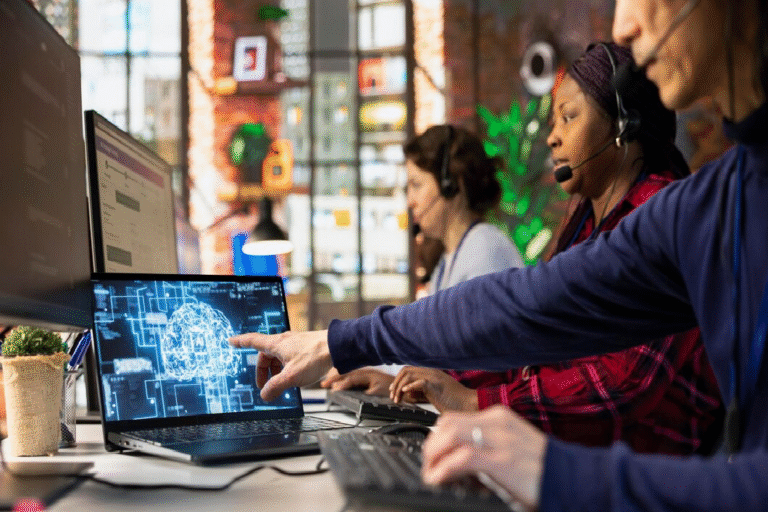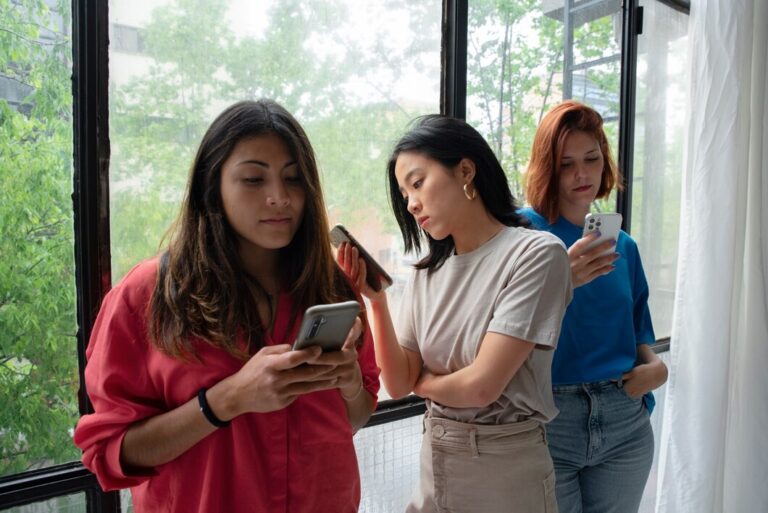
In today’s hyper-connected world, technology permeates nearly every aspect of our lives, including our relationships. While digital tools can certainly enhance connection (think video calls with distant loved ones), excessive screen time and constant digital distractions are increasingly taking a toll on our relationships – romantic partners, family, friends, and even our relationships with ourselves. In today’s hyper-connected world, technology is woven into nearly every aspect of our lives. While it offers many benefits, the digital impact relationships can sometimes be detrimental.
This isn’t about demonizing technology; it’s about recognizing the subtle (and not-so-subtle) ways that digital overload can erode the quality of our interactions and create distance between us and the people we care about most.
This post will explore the multifaceted impact of digital overload on relationships and offer practical strategies for reclaiming genuine connection in a tech-saturated world. Are you ready to prioritize your relationships over your devices?

The Subtle Erosion: How Digital Overload Damages Relationships
The negative impact of digital overload on relationships isn’t always dramatic or obvious. It often manifests as a gradual erosion of connection, intimacy, and communication.
Phubbing: The New Norm?
“Phubbing” (phone snubbing) – the act of ignoring someone in favor of your phone – has become increasingly common. While it might seem minor, phubbing sends a powerful message: “My phone is more important than you.” This can lead to feelings of hurt, rejection, and resentment in the person being phubbed.
The Illusion of Connection
Social media can create an illusion of connection, making us feel like we’re “staying in touch” with people even when we’re not engaging in meaningful interactions. We might scroll through someone’s feed and feel like we know what’s going on in their life, without actually having a conversation with them. This superficial connection can replace genuine, in-person interactions.
Reduced Face-to-Face Communication
As we spend more time communicating through screens, we may have fewer opportunities for face-to-face interactions. This can lead to a decline in our ability to read nonverbal cues, understand tone of voice, and engage in empathetic listening – all crucial skills for healthy relationships.
The Comparison Trap (Again!)
Social media can fuel the “comparison trap” not only for individuals but also for relationships. Seeing curated, often unrealistic, portrayals of other people’s relationships can lead to dissatisfaction with our own. We might start to question our relationship, compare it to others, and feel like it’s not measuring up.
Conflict and Misunderstandings
Digital communication lacks the nuances of face-to-face interaction, making it easier for misunderstandings and conflicts to arise. Tone can be misinterpreted, sarcasm can be missed, and important emotional cues can be lost. This can lead to arguments and hurt feelings that could have been avoided with in-person communication.
Specific Impacts on Different Relationship Types
Digital overload affects different types of relationships in unique ways.
Romantic Relationships
- Decreased Intimacy: Constant distractions from devices can interfere with intimacy and connection, both physically and emotionally.
- Increased Conflict: Arguments about technology use are becoming increasingly common in romantic relationships.
- Jealousy and Suspicion: Social media can fuel jealousy and suspicion, leading to trust issues.
- Cyber Infidelity: Online interactions can sometimes blur the lines of fidelity, leading to emotional or even physical affairs.
Parent-Child Relationships
- Distracted Parenting: Parents who are constantly on their phones may be less present and attentive to their children’s needs.
- Reduced Family Time: Excessive screen time can eat into quality family time, limiting opportunities for bonding and connection.
- Modeling Unhealthy Habits: Children learn by observing their parents. If parents are constantly on their devices, children are likely to develop similar habits.
- Developmental Delays: Excessive Screen time can lead to developmental Delays.
Friendships
- Superficial Interactions: Relying solely on digital communication can lead to more superficial friendships, lacking the depth and intimacy of in-person interactions.
- Less Frequent Hangouts: It’s easier to send a quick text than to make plans to see someone in person. This can lead to friendships drifting apart.
- FOMO and Social Exclusion: Seeing friends’ social media posts about events you weren’t invited to can trigger feelings of FOMO and social exclusion.
Read more: From Overload to Oversight: Managing Screen Time in a Hyperconnected World
Reclaiming Connection: Strategies for a Healthier Digital Balance
The good news is that we can mitigate the negative impacts of digital overload on our relationships. It requires conscious effort, intentionality, and a willingness to set boundaries.
Establish Tech-Free Zones and Times
Create designated times and spaces where devices are off-limits. This could include:
- Mealtimes: Make mealtimes a phone-free zone to encourage conversation and connection.
- Bedtime: Keep devices out of the bedroom to improve sleep and promote intimacy with your partner.
- Date Nights: Dedicate specific date nights to being fully present with your partner, without the distraction of phones.
- Family Outings: When spending time with family, put your phones away and focus on being present with your loved ones.
Practice Mindful Technology Use
Be more conscious of how and why you’re using technology. Ask yourself:
- Is this enhancing my relationship, or is it detracting from it?
- Am I using technology to connect with someone meaningfully, or am I just mindlessly scrolling?
- Could I be spending this time in a more fulfilling way?
Prioritize Face-to-Face Interactions
Make a conscious effort to prioritize in-person interactions with the people you care about. Schedule regular dates with your partner, plan family outings, and make time to see your friends in person.
Communicate Openly and Honestly
Talk to your loved ones about your concerns regarding technology use and its impact on your relationship. Be open and honest about your own struggles and work together to find solutions.
Set Boundaries with Social Media
Limit your time on social media, unfollow accounts that trigger negative emotions, and be mindful of the content you consume. Remember that social media is often a highlight reel, not a reflection of reality.
Lead by example.
Be a good example for children, other family members, and friends.
Conclusion: Connection Over Connectivity
Technology is a powerful tool that can connect us in incredible ways, but it should enhance our relationships, not replace them. By recognizing the potential pitfalls of digital overload and taking proactive steps to cultivate a healthier digital balance, we can reclaim genuine connection, strengthen our bonds with loved ones, and build more fulfilling relationships. It’s time to prioritize people over pixels.
Choose one strategy from the list above and commit to implementing it this week. Share your experiences and any tips you discover in the comments below! How are you prioritizing connection in a digital world?
Frequently Asked Questions (FAQs)
Q1: My partner is addicted to their phone. What can I do?
A1: Communicate your concerns openly and honestly, using “I” statements (e.g., “I feel ignored when you’re constantly on your phone”). Suggest specific changes, such as setting tech-free times or zones. Seek professional help if necessary.
Q2: How can I help my child develop healthy technology habits?
A2: Set clear limits on screen time, model healthy technology use yourself, and encourage alternative activities like outdoor play, reading, and creative pursuits.
Q3: I feel like I need to be constantly connected for work. How can I find balance?
A3: Set boundaries with work-related communication outside of work hours. Designate specific times for checking emails and messages, and resist the urge to respond immediately to everything.
Q4: How can I use technology to strengthen my relationships?
A4: Use video calls to connect with long-distance loved ones, share photos and videos with family members, or use apps to plan activities and events together.
Q5: What are some tools or techniques I can use to help?
A5 Use apps that monitor or limit phone use.





